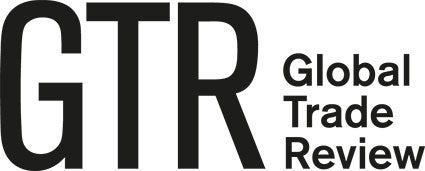As Covid-19 spreads across the world, courier services and the movement of paper documents have slowed. Parties involved in global trade are having to turn to digital solutions, such as electronic signatures and platforms which offer digitised documents, to ensure their trade finance deals and papers can be virtually inked.
With shipping routes and ports disrupted, more countries entering lockdowns and pressure mounting on exporters, logistics networks and banks, there is a strong incentive for businesses who trade internationally to digitise their documents.
“In some cases goods might have been shipped, but banks and buyers have not been able to access physical documents because the courier companies have stopped servicing certain regions, resulting in delays and extra costs,” says Frank Gouverne, COO and co-founder of Rice Exchange, a blockchain platform serving the global rice market.
While courier services carrying important trade finance documents have their operations delayed, impacting banks’ ability to issue letters of credit, for example, and people inspecting those documents work remotely because of Covid-19 travel restrictions, the paper-heavy world of trade and trade finance must find a workaround.
“Over the last couple of weeks, we have received numerous questions from clients about how to deal with the fact that people are working remotely,” says Geoffrey Wynne, partner and head of the trade and export finance group at international law firm Sullivan, tells GTR.
“We needed to advise on how to keep transactions up and running, how to maintain them, and in some cases, what amendments needed to be made to reflect the fact that there is no physical contact. We also need to help clients sign and close transactions in the current climate.”
One way of signing documents digitally is electronic signatures, whereby signatories can ‘sign’ a document via an online platform, such as DocuSign. Once the document has been virtually inked, the system then delivers a digital link or a pdf of the signed document to the coordinator who then counter signs it. Another method is virtual signatures, where a signatory prints and signs the relevant page, scans the signature back in and sends it to the coordinator.
Tony Alvarez, vice-president of network at Tradeshift, a cloud-based B2B commerce platform which enables users to digitally manage their supply chain finance programmes, tells GTR: “There was always the economic incentive of moving from paper to digital, but now the pandemic has forced the issue because in a lot of instances, paper is not moving anywhere.” He adds that when it comes to signing documents and scanning them: “Paper is not moving and people aren’t showing up to run the scanners.”
Wynne says, scanners or not, that there are some documents, which can’t exist electronically – either easily or at all. “Bills of exchange, promissory notes under the English Bills of Exchange Act and bills of lading around the world all incur issues. What we’re trying to do is adopt approaches that can solve the legal problems and so we’re coming up with solutions to address this however we possibly can.”
While trade finance remains a paper-reliant industry and has been slow to digitalise, there are several fintechs which have sprung up in recent years to offer digital trade finance solutions including bills of lading and letters of credit.
To see the full article, click here.

